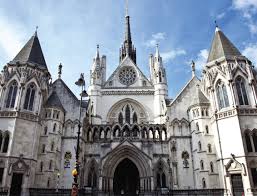By Libya Herald reporters.

London, 4 May 2017:
The Libyan Investment Authority (LIA) has triumphed in its London law suit against Societe Generale when the French bank this morning agreed an out of court settlement worth €963 million ($1 billion).
Though the amount falls short of the $1.5 billion the LIA had been claiming, Societe Generale indicated the payment was just part of the settlement. Few details of the deal are available since the out-of-court arrangement is covered by a confidentiality clause.
The LIA brought its action against the investment bank three years ago. It claimed that between 2007 and 2009, it had lost heavily on $2.1 billion of sophisticated trades. It claimed that Societe Generale’s mandate to work with the LIA, then in only its second year of operations, had been won as a result of a $58.5 million bribe. This was paid by the bank to a Panamanian company run by Libyan Walid Giahmi who had close links with the Qaddafi regime.
It was this allegation of fraud which made the LIA’s case against the French bank different from its $1.2 billion action against Goldman Sachs. Here it lost because it failed to prove the US investment bank had exerted undue influence over LIA executives. It also failed to convince the court that it did not understand the risks in nine complex trades Goldmans recommended and set up the value of which was completely wiped out when financial markets collapsed.
When Societe Generale threw in the towel today in London’s High Court, it said it wanted the record to show that it regretted “the lack of caution of some of its employees”. It also apologised for what had happened and hoped that Libya would soon overcome its present challenges.
The trial,which had begun on Tuesday and was adjourned until yesterday, had promised to be extraordinary. The judge had granted anonymity to some witnesses for both the plaintiff and the defence. Qaddafi-era executives were being protected because they or their families might be endangered if their identities were known. Equally Societe General was anxious that no evidence its witnesses might give, could prejudice the bank’s position with current US investigations into bribery and financial scams.







